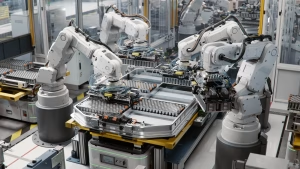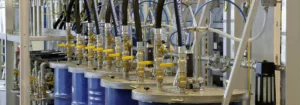Industrial motors are the driving force behind modern manufacturing, powering everything from handheld tools to large-scale production machinery. Their ability to deliver torque, speed, and reliability makes them essential across a wide range of industries. This article explores the three main categories of industrial motors—handheld, portable, and fixed plant—and how each contributes to manufacturing efficiency.
Handheld Industrial Motors
Handheld motors are compact, lightweight, and designed for mobility. They offer precision and flexibility for tasks that require manual control.
Common Applications:
- Power Tools: Drills, grinders, saws, and routers use handheld motors for cutting, shaping, and drilling. These motors are typically battery-powered or corded.
- Portable Generators: Small motors generate electricity for tools and lighting in remote or emergency settings.
- Handheld Pumps: Used in agriculture, marine, and gardening, these pumps rely on small motors to transfer liquids or create pressure.
Portable Industrial Motors
Portable motors are larger than handheld units but still designed for mobility. They offer more power while remaining easy to transport.
Common Applications:
- Mobile Power Units: Provide energy for welding, grinding, and pneumatic tools in construction and maintenance.
- Portable Compressors: Used in automotive and industrial settings to power pneumatic tools and inflate tires.
- High-Capacity Generators: Supply electricity for heavy-duty equipment like welding machines and construction gear.
Fixed Plant Industrial Motors
Fixed plant motors are stationary and built for continuous operation in industrial facilities. They power heavy machinery and critical systems.
Common Applications:
- Manufacturing Machinery: Motors drive lathes, milling machines, presses, and assembly lines.
- Conveyor Systems: Enable material transport across production floors.
- Pumps & Fans: Used in HVAC, chemical processing, and fluid transfer systems.
- Material Handling Equipment: Cranes, hoists, and lifts rely on powerful motors for moving heavy loads.
Key Factors When Selecting an Industrial Motor
Choosing the right motor depends on several performance and environmental considerations:
- Power Rating: Must match the equipment’s energy needs.
- Speed & Torque: Should align with the application’s mechanical requirements.
- Efficiency: Energy-efficient motors reduce operating costs.
- Duty Cycle: Determines how often and how long the motor runs.
- Environmental Resistance: Motors should withstand heat, humidity, and corrosive conditions.
- Maintenance Needs: Consider ease of servicing and parts availability.
Conclusion
Industrial motors are indispensable in manufacturing, offering the power and versatility needed to drive productivity. By understanding the types of motors and their applications, manufacturers can make informed decisions that optimize performance and reduce downtime.
Are you looking for more information? If you have any questions about how the air motor might be used in your application, feel free to reach out to us anytime.


